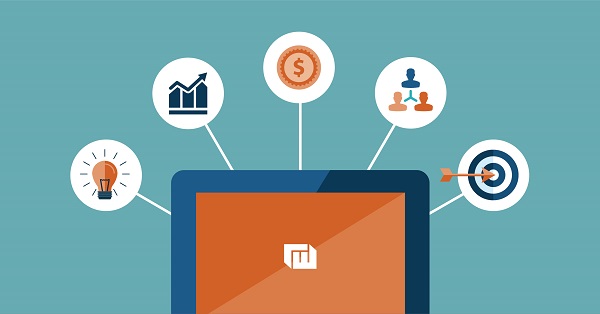ECommerce Marketing Strategies Proven To Increase Sales

Marketing for eCommerce necessitates strategies that are distinct from your standard digital marketing efforts. To achieve true, long-term success, your eCommerce marketing strategy must be laser-focused on the shopping experience of your customers and strategies for improving it.
Organic revenue, targeted web traffic, click-through rates (CTRs), and shopping conversion rates are among the key performance indicators (KPIs) that your company will focus on. These are some of the key points to consider when marketing for eCommerce.
Responsive Web Design
A mobile-friendly design must be part of your e-Commerce marketing strategy. Making site elements mobile-friendly is an essential part of your eCommerce marketing plan. Google favors highly responsive websites and penalizes those that aren’t. Consider mobile-friendliness to be a critical component of your overall eCommerce SEO strategy.
The goal of this aspect of your eCommerce sales strategy is to make things as simple as possible for your visitors. Each user should be able to easily find products, view product photos, and scroll through product details.
Search Engine Marketing (SEO)
Developing a website for your company is only half the battle. For your target audience to find you in a crowded market, you’ll need an eCommerce SEO strategy to supplement your web development efforts.
After all, there’s little point in having an eCommerce store if your prospects can’t find it. Using best practices for SEO for eCommerce websites will necessitate the following:
- Conduct keyword research relevant to your brand;
- Use different keyword strategies for each product;
- Use conversion rate optimization (CRO) to analyze campaign performance; and
- Optimize your site’s content and product descriptions.
Improving the customer experience is related to the technical side of SEO. This is an essential component of any eCommerce marketing strategy.
Email Marketing for eCommerce
Any digital marketing strategy should include a personalized eCommerce email marketing strategy. Consider it a tried-and-true strategy for reaching out to your ideal customers. Is it an intrusive method of marketing? No, not at all. 49% of people prefer to receive emails from brands they like.
You can send the following types of emails:
- Birthday emails: assist you in staying in touch with current customers.
- Welcome emails: for new and returning customers
- Shopping cart abandonment: according to BI Intelligence, 63 percent of cart abandonment is recoverable
- Newsletters: stay in touch with clients and increase website traffic
- Thank you emails: nurture customer relationships and product promotion
- Promotional emails: notify customers of discounts and increase sales volume.
Other types of email campaigns are available, and data provided by eCommerce marketing services can assist you in developing new campaigns. Digital marketing service providers’ tools assist you in gathering information about your customers, competitors, and industry segment.
Other types of email campaigns are available, and data provided by eCommerce marketing services can assist you in developing new campaigns. Digital marketing service providers’ tools assist you in gathering information about your customers, competitors, and industry segment.
Paid Campaigns
In addition to using SEO to drive traffic to your eCommerce website, consider using pay-per-click (PPC) advertising to see quick, cost-effective results and strengthen your overall eCommerce marketing strategy.
Do you recall seeing advertisements at the top of search engine results pages (SERPs)? That’s PPC at work. It’s also a targeted way to broaden your reach. By incorporating them into your eCommerce strategy, you can optimize for specific keywords to reach a specific audience, namely those who are ready to make a purchase.
The important thing to remember about PPC is that you will only be charged when someone clicks on your ad, which is why the platform is called “pay-per-click.” Make a budget for these ads when developing your eCommerce marketing strategy. You’ll mostly use three types of ads: paid search ads, product listing ads, and display ads.
Aside from the strategies and marketing ideas outlined above, there are additional factors to consider as you develop a strategy that works for your company.
Depending on the stage of your campaign, you may need to create an eCommerce sales funnel, as well as perform web audits and A/B testing. This is where an eCommerce marketing services provider like BS360DEGREE solution can help.
Recent Posts
Categories
- Astounding
- Bounce Rate
- Brand Awareness
- Brand Building
- Brand Development
- Branding Mistakes
- Business Consulting
- Business Development Strategy
- Business Problem
- COVID 19
- Digital Marketing Strategy
- E-Commerce ROI
- Financial Services
- Human Capital Management
- Inbound Marketing Statistics
- Insights
- Marketing Strategy
- Online Competition
- Outsourced Accounting Services
- Social Media
- startup faces
